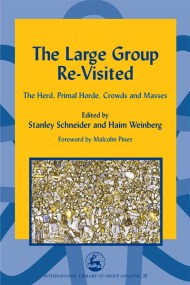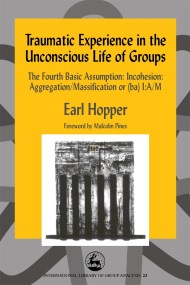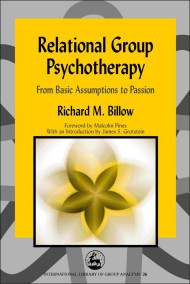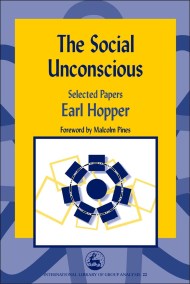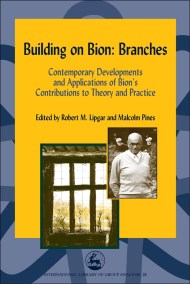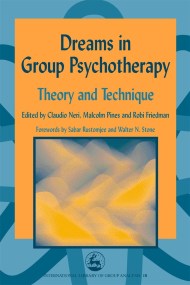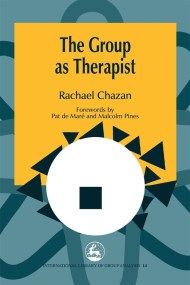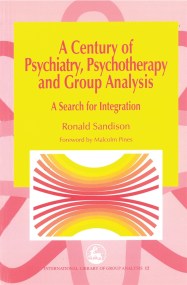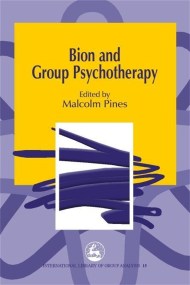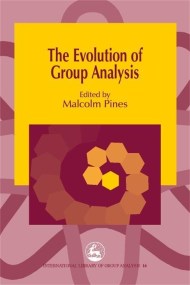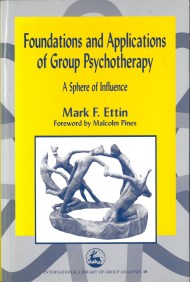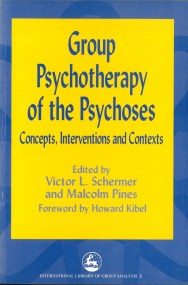In this critique and extension of the work of S.H.Foulkes, Farhad Dalal presents a thorough contemporary appraisal of the theory of group analysis and its relevance to psychoanalysis as a whole. The author argues that Foulkes failed to develop a specific set of group concepts, relying instead on the traditional individualistic framework of Freud. The book explores why Foulkes failed to escape from the orthodox mother-infant paradigm and offers a new post-Foulkesian interpretation of group analytic theory.
Taking the Group Seriously is divided into six parts which trace the history of ideas behind group work, and draws on a wide range of subjects to support its thesis: not only psychoanalysis and group analysis, but also sociology, biology, chaos theory, genetics, economics, game theory and discourse theory. Using the author’s practical group experience and including the latest ideas on the subject, this volume will be of interest to all those working in the field of psychoanalysis.
Taking the Group Seriously is divided into six parts which trace the history of ideas behind group work, and draws on a wide range of subjects to support its thesis: not only psychoanalysis and group analysis, but also sociology, biology, chaos theory, genetics, economics, game theory and discourse theory. Using the author’s practical group experience and including the latest ideas on the subject, this volume will be of interest to all those working in the field of psychoanalysis.
Newsletter Signup
By clicking ‘Sign Up,’ I acknowledge that I have read and agree to Hachette Book Group’s Privacy Policy and Terms of Use
Reviews
This book sets out to think about the development of the scientific understanding of the analytic group. The book is broken into six chapters, Freud Foulkes, The interlude between Foulkes and Elias, the sociologist, Biology, and it concludes with a chapter on the Elements of a Post-Foulkian Group Analytic Theory...It is both energetic, meticulous, restless, scrutinising, sometimes under a microscope, hungry for knowledge and re-evaluative.
The work is energetic, meticulous, restless, scrutinising, sometimes through a microscope, at other times a telescope; hungry for knowledge and re-evaluative.
His points are well taken and his critique of theorizing in the field of analytic group psychotherapy is telling accurate and incisive. It is a commentary long overdue.
It is a pleasure to review a book that has something new to say and says it so coherently. Fahad Dalal asks us to re-examine our concept of the individual. Thoughtfully and simply, he introduces ideas from the worlds of discourse analysis, evolutionary biology, philosophy and sociology which nudge us to start from the social unconscious. In a world that knows about complexity we have to work with language and new ways of thinking. Farhad Dalal is particularly interested in group analytic theory and describes how lines of thought were constrained by the surrounding culture. He takes the more radical ideas and gives a whole new perspective on the structured network of human existance itself. The book builds on Norbert Elias' work. He sees the social as precipitating not only the individual but also the structures of experience, both external and internal. Farhad Dalal suggests that within the psyche socio-political relations become a fundamental part of the deep structure and organisation of the self. This is something we need to work with if we are to help our patients with aspects of difference. The book is a breakthrough because the author has been prepared to say exactly what he thinks.
For me, this book is one of the most important publications in the group analytic movement since Foulkes's first book in 1948. In a very illuminating way, Dalal shows how, what he believes to be, inconsistencies and contradictions in Foulkes's theoretical foundations flow from his attempts to hold two contradictory positions… Dalal carefully deconstructs Foulkes's writings, distinguishing between what he calls `orthodox' Foulkes who follows Freud and `radical' Foulkes who follows Elias… This book issues an important challenge to the group analytic community to take up the promise of `radical' Foulkes and develop a distinctive group analytic theory.


